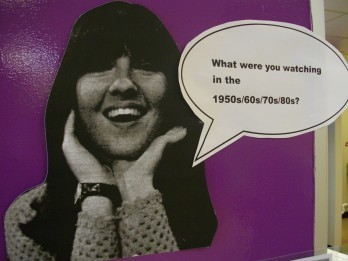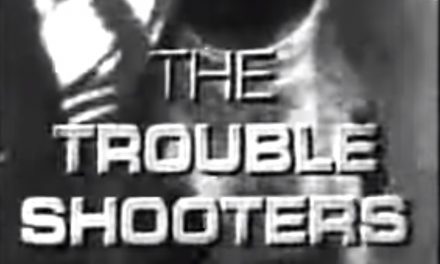I watch old sitcoms when I can no longer watch the news or news round ups, or even talk shows; when I feel so hopeless and helpless I just need to try and relax enough to be able to sleep and finish up today before the next one starts again. Many of you are likely feeling the same, including those in the arts who may be having particularly sharp ‘what does it all mean?’ moments – like this excellent piece from my colleague Martin Cloonan, in Popular Music Studies.
If any of this resonates particularly (and maybe too) loudly, reach out for help.
There’s not a lot to laugh about at the moment – a feeling made worse by the comedy industry being hit hard by lockdowns. The annual Melbourne Comedy Festival, alongside its Edinburgh and Montreal counterparts, is where Australian (and international) television comedy blooms. Scheduled for April, 2020 was the first year since 1987 that it didn’t go ahead. The majority of workers for this, and associated arts events, were contractors, freelancers and casuals – ineligible for government support, and without industrial support like paid leave.
Shutdowns haven’t stopped screen comedy makers from soldiering on. A happy (experimental) hub has opened up via artist management company Token, who look after Australian artists with international profiles like Adam Hills and Hannah Gadsby, as well as those more locally focused. One of their innovations was to get local legends Lano and Woodley to do a live mini-season on Zoom. It was TV comedy of a different form, but it was glorious. Not least of all because it had a new original song written specifically for the medium called “10 second delay”. They also released a lovely little season called the Australian Lockdown Comedy Festival on streaming service Stan. Ideal for fringe festival fans.
 Other pre-existing television comedy outlets have adapted a bit differently. Our main public broadcaster, ABC TV, has commissioned in conjunction with Screen Australia a sketch show called “At Home Alone Together”. Described as a ‘a lifestyle show for a world where nobody has a life’, the show has provided a release for people watching, but importantly, also for those television makers otherwise out of work. Although budgets and crew are lean, they are there. And the laughs have been raw and excellent, either completely of its time
Other pre-existing television comedy outlets have adapted a bit differently. Our main public broadcaster, ABC TV, has commissioned in conjunction with Screen Australia a sketch show called “At Home Alone Together”. Described as a ‘a lifestyle show for a world where nobody has a life’, the show has provided a release for people watching, but importantly, also for those television makers otherwise out of work. Although budgets and crew are lean, they are there. And the laughs have been raw and excellent, either completely of its time
or with exactly no connection to the real world at all
The BBC has also stared the crisis down with “Staged”, a new locked down series starring David Tennant and Michael Sheen. Each actor is at home, trying to compensate for lost stage time with the extra screen time. And each, with very little kids home. Two blokes talking rubbish in lovely accents. What else is needed?
https://youtube.com/watch?v=HNvre0lsvvI&list=PLU31BoFkLXR6ZH_pX6ICm0jfZL7eTVNQ5
There is SO MUCH tragedy around at the moment. Not the metaphoric kind, but the literal, heart-wrenching, life-changing (or -taking) tragedy. It’s hard to know how to deal with it, let alone what part, if any, television might play.
I have re-watched all of “How I Met Your Mother” in the last few months – it’s satisfied my need for certainty – at least I KNOW Ted will be okay. And it has just enough mildly problematic identity politics in it that I can have something to think about when I want to stretch my brain a bit, but it’s not enough to make me lie awake at night (ie – like the full “Fawlty Towers”).
By the way – I know there is SO MUCH more to the issue of identity, representation and comedy than a punchline. And part of my acknowledging that is me not being the one to comment further. Instead, I recommend following (and buying – buying is proper support!) everything done by Australian comedians/writers/multi-talents Nakkiah Lui or Briggs. Here’s the latter with Tim Minchin, a music/comedy/activist piece that’s also a fundraiser for First Nations COVID-relief. Although the references are particularly Australian (‘Scotty from Marketing’ is our Prime Minister), and the swearing is very liberal, it shows how energy, anger, sadness and comedy can still combine. Also, be warned: it’s catchy as.
And THAT is what television (and its offshoots) can do. It allows for a huge variety of ways to connect.
Dr Liz Giuffre is a senior lecturer and researcher in Media, Music and Cultural Studies at University of Technology, Sydney, Australia. Her work focuses on music and television in particular, including audience studies, fandom, cultural history and cultural industries in transition.





Dear Liz,
Many thanks for this – so sad to think that the Melbourne Comedy Festival – as with so many festivals – isn’t happening. Even up here, we know of its importance and standing. Indeed, my wife and I ended up spending some time with John Pinder in Edinburgh in 2006 and he was *such* a fascinating guy to talk to.
And – yes – isn’t “Staged” wonderful? We finished it the other night. Very, very clever. And very, very funny.
Hope you keep your spirits up at this terrible time. And all this laughter can help.
All the best
Andrew
PS: So lovely to know that there’s other people out there who love the music from “Doctor Who” as well.